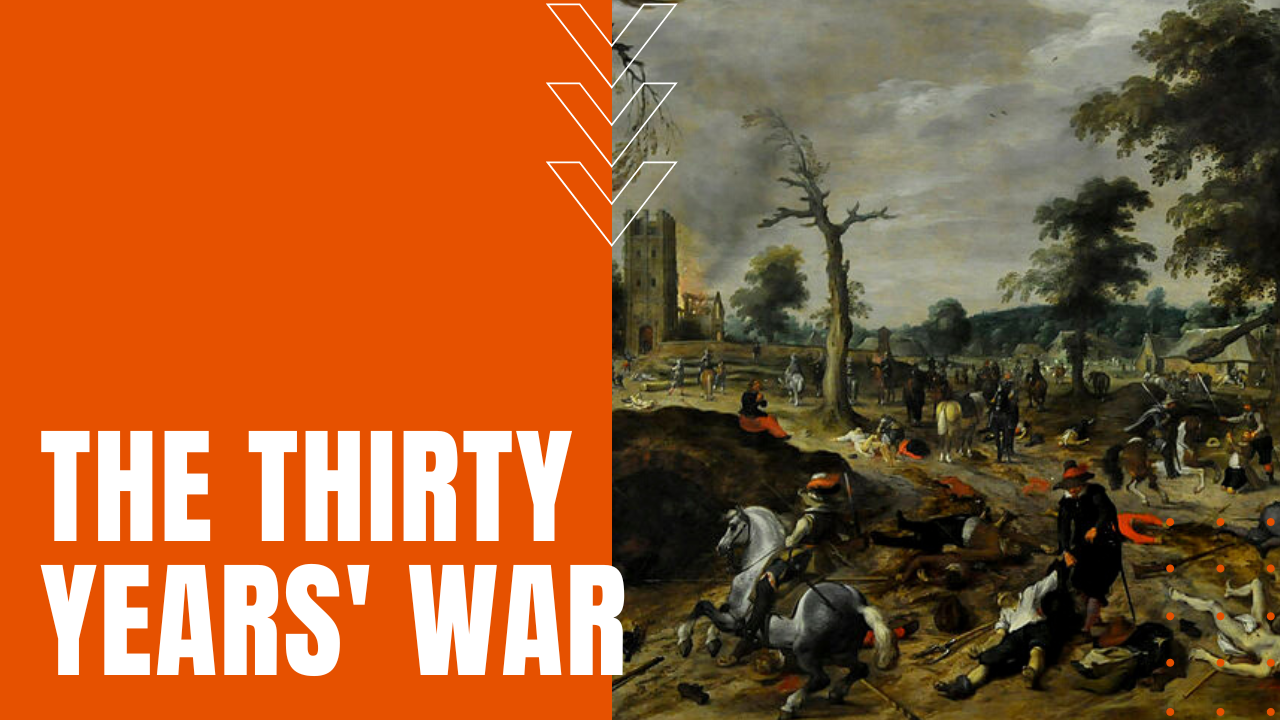The Thirty Years’ War

Despite the religious freedoms granted by the Reformation’s 1555 Peace of Augsburg, when Emperor Ferdinand the 2nd was crowned king of the Holy Roman Empire in 1618, his first decree was to force Catholicism upon states who had converted to Lutheranism or Calvinism, which failed to sit well with Bohemian nobility in present-day Austria and the Czech Republic.
Bohemian Revolt
Known as the Defenestration of Prague and the Bohemian Revolt, the Bohemians at first expressed their displeasure by throwing Ferdinand’s representatives out of the highest window in Prague Castle, before joining the Scandinavian states in the opening battles of the Thirty Years’ War. As the decades-long war divided Europe over religious dogma, The Bohemians formed alliances with present-day Germany, Belgium and France—including an alliance with soldiers of the Ottoman Empire in exchange for yearly dues paid to the sultan—while King Phillip IV of Spain threw his support behind his uncle, Ferdinand II, culminating in some of the bloodiest conflicts in human history.
Failing Swedish Resolve
After the armies of Denmark and Norway fell to Ferdinand’s forces, in 1630, Swedish leader Gustavus Adolphus pushed Ferdinand’s forces out of the region, until the Swedes lost their resolve when Adolphus was slain in the 1632 Battle of Lützen, further vanquished in 1635 when Albrecht von Wallenstein lent his 50,000-man force to Ferdinand in exchange for the freedom to plunder any Scandinavian lands he conquered.
Enter the French
The French joined the conflict that same year after their pushback against provisions laid out in the Peace of Prague, leading to continued years of bloody fighting, even after Ferdinand died of old age in 1637. The last significant battles in the Thirty Years’ War were fought in 1647, when Hapsburg leader Octavio Piccolomini repelled Swedish and French forces from present-day Austria, followed by the 1648 Battle of Prague, when the Swedes captured Prague Castle, but failed to take the city.
Egregious Losses
Exhausted by three decades of war, which witnessed the death of some eight million people who perished from combat, famine and disease, many historians believe that the Peace of Westphalia both ended the Thirty Years’ War, while establishing the modern nation-state countries of present-day Europe, radically altering the balance of power on the continent, while reducing the influence of the Catholic Church in the affairs of European politics, making the Thirty Years’ War, yet another justification for the separation of church and state.
